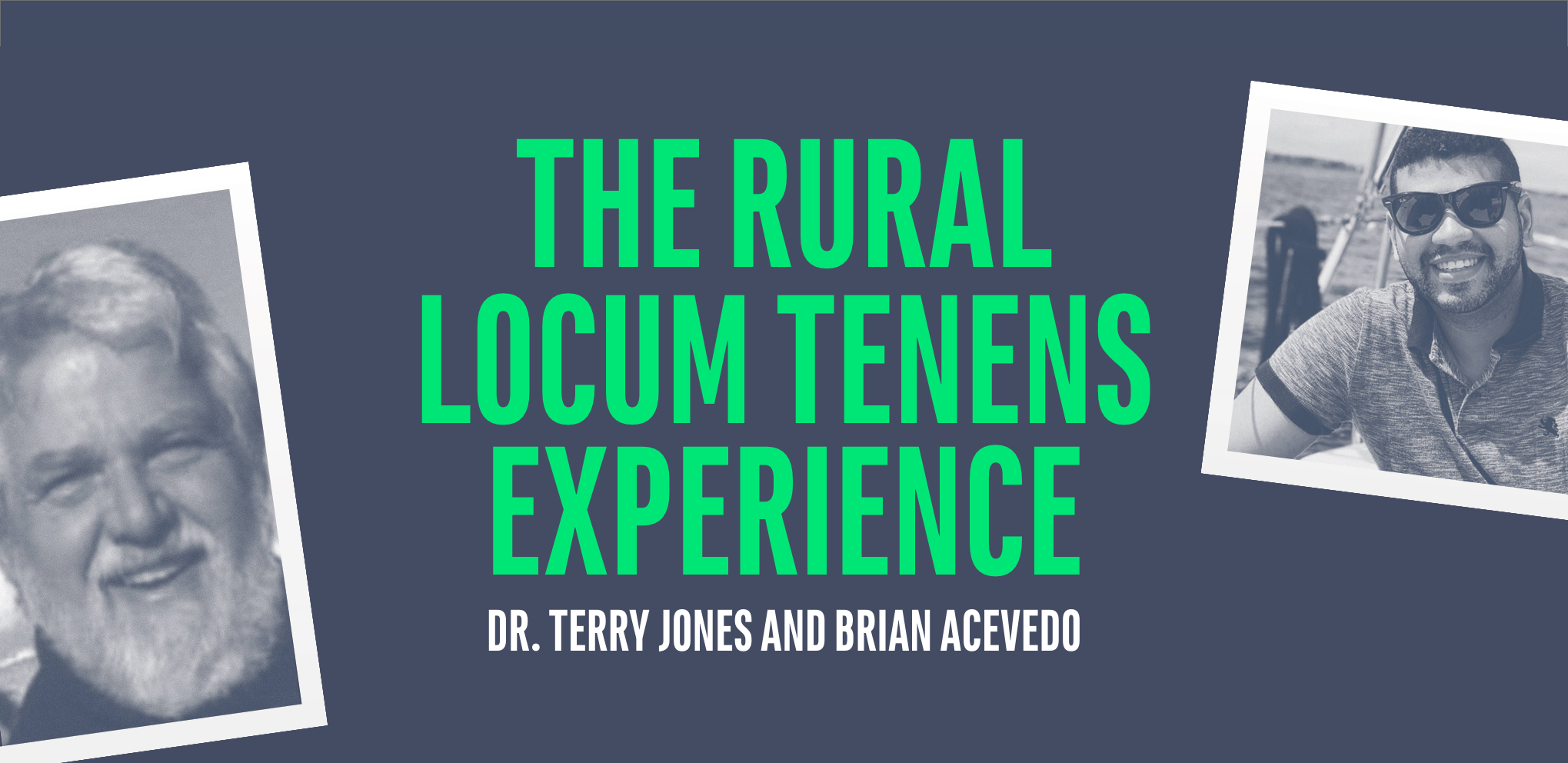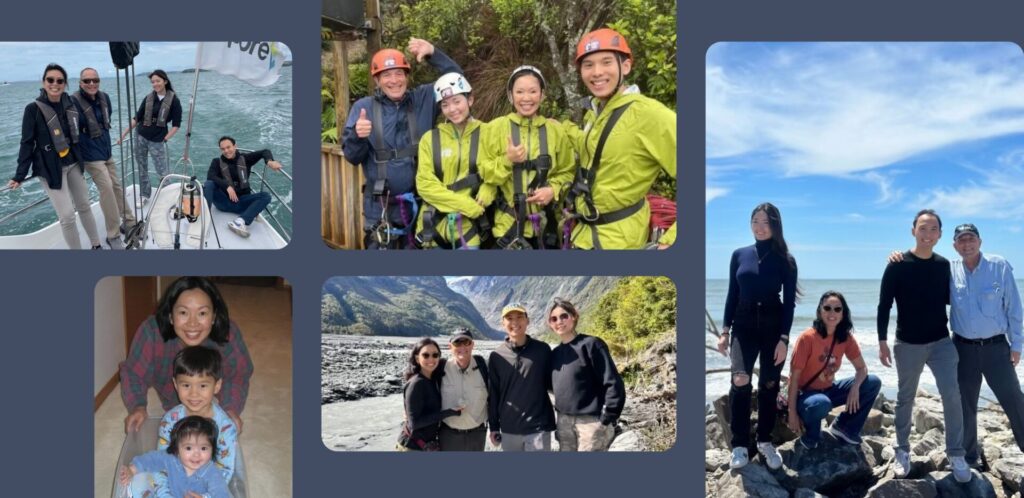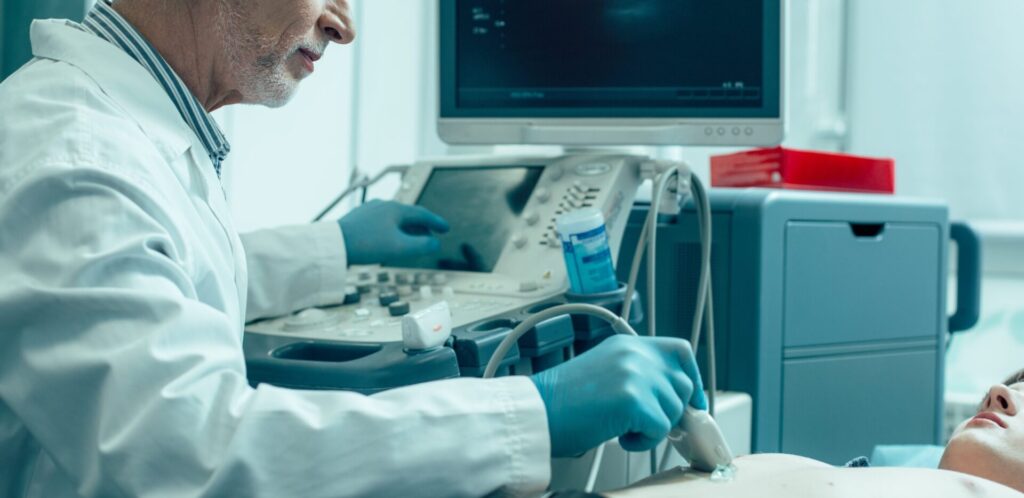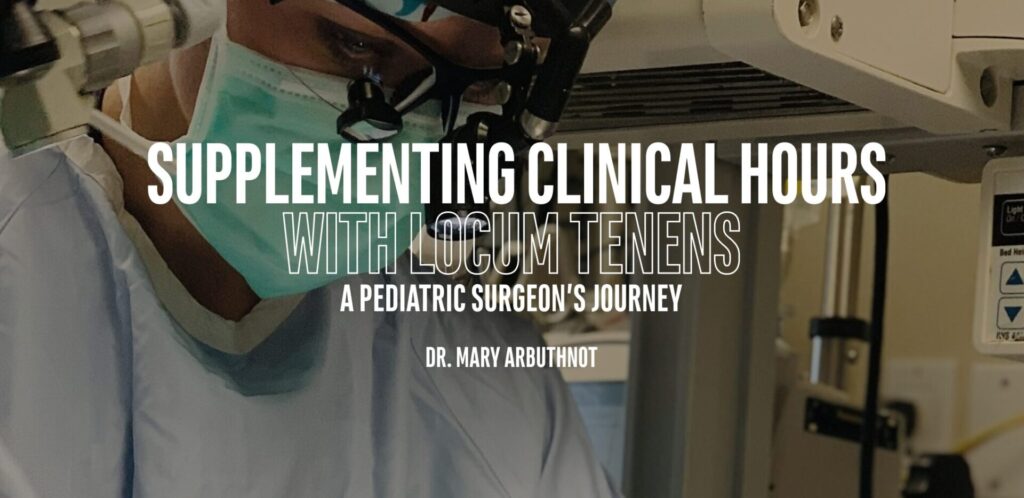Recent studies show that more and more physicians are willing to consider rural practices: and they’ve never been more necessary.
Dr. Terry Jones has been practicing as a locums physician in Montana for decades, and seen firsthand the difference doctors can make to rural communities. We sat down with Dr. Jones and his Hayes Locums consultant, Brian Acevedo, to talk about what it’s like to practice in rural emergency rooms, and why it’s never been more important for physicians to show up for underserved communities.
Read on to find out more about the rural locums experience:
What made you decide to start working as a locums physician?
I started way back in the 90’s, before locums was much of a thing. Before that, I was a critical care nurse in Portland. But I’d always toyed with the idea of going to medical school, so I decided to throw my hat in the ring and do just that.
Around the same time, I married a Montana girl that I met while doing my first traveling ICU job in Wyoming. I had always wanted to live in Montana when I was growing up, so that’s the first place we headed after I finished my internship.
I went through quite a few changes at once: I changed from a critical care nurse in the state of Oregon to an emergency care doctor in the state of Montana, and went from practicing at the biggest hospitals to the smallest hospitals.
I found the smaller rural hospitals to be the most rewarding. They require you to use everything in your toolkit––there’s no specialist right down the hall to send your surgical or cardiac cases to.
That’s what got me interested in locums in the first place: You have to make it work, so you make it work.
After doing that for a while, the times I went back to work in large hospitals almost felt boring to me. Large hospitals can be like cherry picking: you do the easy stuff, and there’s always a specialist nearby to take the cases you can’t handle.
You have decades of experience working in rural practice environments. What drew you to rural work?
A friend of mine used to say “You find the best and the worst at the end of the road,” and I’ve found that to be true. Some of the neatest people I’ve ever met are the farmers and the ranchers. They’re just so gratified to get help. When a farmer comes to see you for something and he’s hobbling, you know that leg is probably broken. They won’t come to see you for a mosquito bite. When they come to see a doctor, there’s a really good reason for doing that. And they’re so grateful. It just makes the work that much more fun.
My experience working in urban settings was mostly as a critical care nurse, but it made me really familiar with the hospital environment. So I already knew what I was getting into when I went into medicine. I knew what kind of doctor I did and didn’t want to be. And I don’t think I’ve ever worked in a hospital with more than 75-100 beds since. I don’t want to go back to the large hospitals after having worked at the smaller hospitals.
I bet the nurses love you, since you’ve had experience as a nurse.
Yeah, it’s so funny. Nurses speak their own language, and they just hate doctors who haven’t grown up yet. So it has worked out really well. Mostly they’re kind of tickled that somebody would go from nursing to medicine. But it really makes for much better communication.
You had a recent assignment where you had to get credentialed and show up to work within 72 hours. Can you both talk about what that experience was like?
Brian Acevedo: It was Thursday night and they emailed us and said, “Hey, we have an immediate need for an emergency medicine physician who’s licensed that can be here Sunday morning.” I gave Terry a call and said, we’ve been waiting on the right opportunity, and I know this is a little more last minute than we had planned, but if we can get this paperwork in within the next two days, we can have you there Sunday morning.
Dr. Jones: Yeah, it was wild. I’ve never been through such a rush before. It was during the second peak of the pandemic, so hospitals were overflowing. You’d have critical patients, dying patients, and no place to send them because the larger hospitals many times were not accepting new patients, since they had too many to start with.
What do you think would have happened if you hadn’t been able to take that job in this rural hospital?
People would have died. There’s no question.
We had a cardiac patient that was going bad fast. He had an active infarction and we were able to get him okayed for the transfer to a larger hospital that had cardiologists available. And when he was about halfway there, the hospital called and said no, we can’t take him. Fortunately, one of the nurses who was on the phone said well, you are taking him, because he’s not going to make it if he turns back around. I have never wanted to hug a nurse so bad. Because we had a lot of other critical patients at the time too. Thank God for the nurses there, who were really sharp.
What do you see as the impact of locum tenens on rural hospitals environments?
You know, I do a lot of carpentry, and there are certain tools that I really count on. A good doctor is like those tools. Especially in the ER. At these smaller hospitals, they might only have one or two doctors, so when your doctor is on vacation, or they get sick, what do you do? There’s not another doctor down the street that you can just call. When a hospital doesn’t have a doctor in the ER, they end up closing down.
We have such a critical shortage of doctors right now. We’re that special tool in the toolkit, but there are not enough. We are critically needed right now.
I imagine the pandemic has probably exacerbated that need as well.
Very much so. These places are just crying for doctors, and nurses, too.
At the same time, we really have to take care of ourselves, too. People call us heroes, and that’s great, but we really are in harm’s way. I’ve aged considerably in the last two years.
Do you feel that doctors and healthcare workers are being recognized and acknowledged for their work during the pandemic?
I’ve known a few heroes in my lifetime, and I think most of my heroes are kind of quiet. They don’t get a lot of praise. But you know, we’re living in a time where if healthcare professionals don’t take care of the sick and dying, who will? We’ve lost a million people in this country in the last two years. So somebody has got to take care of them, and we’re the ones to do it.



